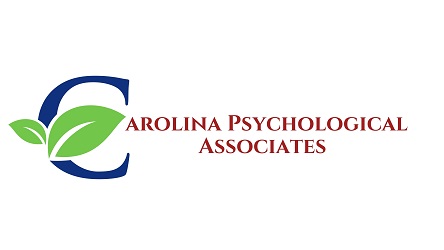Why Pronouns Matter
This is the beginning of a Spring Series to provide education and create awareness for the LGBTQIA+ community. For this specific blog post Blake Herd, MA, LPA has given some great insight into his work with individuals in the LGBTQIA+ community and the importance around the use of pronouns. Blake is a therapist here at Carolina Psychological Associates who has been working in a therapeutic setting with members of the LGBTQIA+ community for 4 years.
Blake Herd, MA, LPA
Pronouns are used when referring to a person without having to use their name repetitively in conversation. Historically, pronouns are gender specific, therefore individuals are generally referred to as he or she. This can be problematic for individuals who do not identify as cisgender and heterosexual. The use of preferred pronouns for individuals in the LGBTQIA+ community is incredibly important, and Blake offers some great insight and advice below.
From your experience, why is the use of preferred pronouns so important?
“Many members of the LGBTQIA+ community deal with stressors that most heterosexual cisgender individuals do not. Using the correct pronouns is important because it helps to alleviate some of the day-to-day stressors that people of the LGBTQIA+ community deal with on a regular basis. The simple use of preferred pronouns helps to make them feel seen and accepted. Although using the correct pronoun may seem like a small thing, pronouns are used to refer to us even more than our names, so being called the wrong pronoun day in and day out can really add up and impact someone’s self-esteem, perceived value, and mental health. Using a person’s preferred pronoun is a simple way to alleviate some of these daily stressors.”
What is the best way for parents to start the conversation around preferred pronoun use?
“I often find that a great way for parents to start a discussion about pronouns is by identifying what pronouns they prefer themselves. This creates an opportunity for a conversation and lets their children know that they are open to discussing the topic now and in the future.”
What do you normally tell parents who have reservations about using their child’s preferred pronouns?
“I usually tell parents that one of the strongest protective factors against mental health and other related issues in members of the LGBTQIA+ community is family acceptance and support. Using your child’s preferred pronoun is a way to show them that you accept them and support them even if you don’t completely understand what they are going through.”
What is the best way for friends to start the conversation about preferred pronoun use?
“As with parents, I usually tell friends that one of the best ways to start a conversation about pronouns is to open up about how they identify and creating an environment where others feel able more comfortable to talk about their own preferred pronouns. For both friends and parents, it is important not to force someone else to talk about how they identify or to “come out.” Even if you try to start a conversation about pronouns with someone, they may not yet feel comfortable talking about their gender identity and that is okay.”
What are some helpful resources for the topic of pronoun use?
“One website that can be helpful when working with parents of LGBTQIA+ children is: www.leadwithlovefilm.com It provides videos from varying perspectives to help parents and friends of LGBTQIA+ people to be more accepting and affirming.”
Your child, friend, or loved one might not be ready to have a conversation about their preferred pronouns yet, and that’s okay. Don’t pressure them. Simply offer your support by expressing which pronouns you prefer for yourself. This may seem like a simple step, but it shows your child, friend, or loved one that you are available to have that conversation when they are ready. Stating preferred pronouns is also a great thing to include in your name on a Zoom call or on the signature line of your email.
Always remember, if you are not sure which pronouns to use, just ask! This prevents you from assuming and potentially using the wrong pronouns.
To learn more about Blake Herd you can head over to “Our Providers” and read the biographies!

